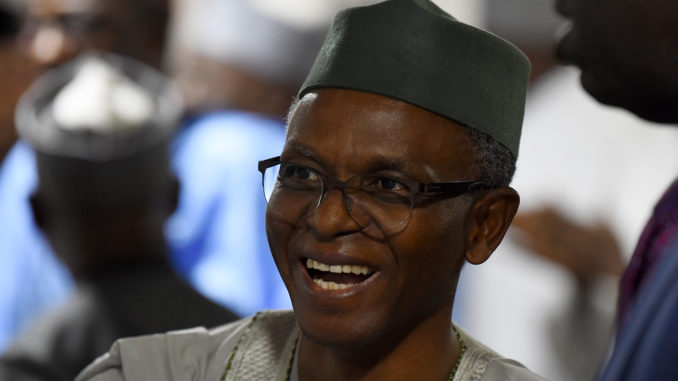
The claim and counterclaims between the governor of Kaduna State, Mallam Nasir el-Rufai and a number of other interested parties on the number of casualties in the controversial attack on Kajuru village in Kaduna South have been unhealthy, especially at this time.
Saddening tales of killings and reprisal attacks in Kaduna and other states of the federation have recurred so often and gone on for so long that Nigerians have become somewhat inured to intolerable and indecent occurrences.
Just as the people of the Kajuru local government area in the volatile northwest state were smarting from the anguish about 11 members of the Gindin Gada community reportedly lost between February 10 and 12, Mr. el-Rufai asserted a few days after that 66 Fulani men were killed in eight settlements across the Kajuru Local Council on or about February 15. That was barely a day to the Presidential and National Assembly elections as earlier scheduled – for February 16.
The governor’s claim was curiously supported by the Chief Imam of Adara Kingdom, Nuhu Shaban.
The governor added that ‘the elders (in the community) know those involved in the killings and have refused to fish them out’ and threatened a withdrawal of ‘support’ to the communities by government and security agencies.
But the governor’s claim was promptly challenged. The chairman of the Christian Association of Nigeria (CAN) in Kaduna State, Rev. Joseh Hayab who hails from the area maintained that only the earlier incident happened and there was nothing to the el- Rufai’s claim.
Besides, Senator Shehu Sani, whose constituency covers the affected area said, ‘what the people told me was that the issue happened on Sunday and the security agencies waded in and resolved it immediately.’
In the same vein, the zonal coordinator of the North-West office of National Emergency Management Agency (NEMA), Ishaya Chonoko denied the governor’s claim about that Friday’s incident.
On the same issue, former chairman of National Human Rights Commission, (NHRC), Prof. Chidi Odinkalu also cast a doubt upon el-Rufai’s statement, beside accusing him of ‘throwing out words that were calculated to be very incendiary.’
Nevertheless, a few days later, the governor, speaking in Abuja, revised the casualty figure upwards to say that ‘the last report we got is that over 130 people were killed, not even 66.’
This curious update came after a reported army formation ‘conformation’ of the governor’s claim. It has been curious that police authorities as the lead agency in internal security issues, have failed to confirm the incident as claimed by the governor. This is a serious lacuna in the mix.
From even the most ordinary citizen, reporters of a conflict situation at any time must be sensitive – to prevent escalation.
This is a responsible thing even media gatekeepers do at all times in the interest of peace. And so from a highly placed public official, it is reasonable to expect the highest possible sense of responsibility commenting on a conflict situation.
The point at issue here is not the veracity or falsity of the claims and counterclaims. Apart from the fact that the governor failed to get the input of the police force while announcing, the timing and profiling in the story, (mentioning 66 Fulani), which smacks of a hate speech at the time, the risk assessment of the story was poor. Such utterances could have triggered dire consequences a day to a general election.
No doubt, Governor el-Rufai’s public utterances on this matter are unhelpful to the cause of peace in his state and the country. It is a pity that the governor failed too to understand part of his main constitutional obligation to the people he governs.
The constitution provides in Section 14 (2) that the primary purpose of government is welfare and security of the people.
Besides, the state has been a flashpoint for years as there have been clashes between two major religions in the state.
The current national mood too requires that every citizen, high and low must do nothing to insult sensibilities, inflame emotions and raise tension.
We all have a responsibility to do everything within our respective powers to prevent fresh conflicts and contribute to the resolution of existing ones.
This behaviour is most required from people in leadership positions and whose words can affect for the good or for ill, the behaviour of their followers.
The first step to this end is to keep the tongue in firm control to avoid unguarded utterances. There is so much power in the words we use at all times.
It is also strange that this unguarded statement came after a controversial ‘body bags’ gaffe by the same governor while reacting to some issues that concerned conduct of the on-going election and international observers.
The seemingly inflammatory comment on foreign election observers could have been avoided, in this regard if the governor had allowed Nigeria’s foreign affairs minister and his diplomats to deal with the matters arising then.
It should be noted, in the circumstances that in the very interconnected global village, bad language and bad manners don’t go unnoticed: such gaffes and faux pas shape and sometimes ruffles diplomatic relations.
Which is why we need to say that at this juncture, discretion is a great virtue that we cannot urge enough upon leaders at all levels in this country.
Indeed those who aspire to lead too should note that the art of public speaking, especially by leaders, is a discipline they should learn and continue to re-learn. They should always note that there is enormous power in the word!
END

Be the first to comment